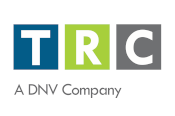Environmentally friendly organizations are becoming the new normal and are an expectation from a staggering 57% of consumers who state they would take their business elsewhere if an organization is not Socially Responsible. Going green and using sustainable practices has been thought to have higher upfront costs without corresponding boosts to profits. But is that true? How can going green with ISO 14001 mitigate potential hurdles associated with become Socially Responsible? Perhaps the implementation of ISO 14001 will solve all your problems.
Myth – Going green costs more and does not bump my profits.
There is growing evidence that shows just the opposite.
Consider this: To become more “environmentally friendly”, Purex created their Concentrated Detergent, using less packaging, cut water and energy consumption by 51% and reduced waste by 47% per ton of production. Marketers promoted the environmental benefits, and how consumers could use less detergent for higher cleaning results. A staggering win for consumers and the environment.
Purex cut their packaging costs by decreasing the overall weight of the product, which also cut shipping costs. Overall, it was a smart business move and removed inefficiency.
Consider the resources your organization is wasting. Consider the environment, but also consider your bottom line.
The Cost of ISO 14001 and Going Green
Switching to energy efficient lighting or to electric/hybrid over gasoline engines might cost more upfront, but the benefits of going green outweigh the costs, especially if you’ve implemented a system like ISO 14001. ISO 14001 promotes increasing efficiencies which will reduce waste, lower energy consumption through conservation, and boost your bottom line. Consider that when you switch from incandescent light bulbs to energy efficient light bulbs like the compact fluorescent light bulbs, you use 70% to 75% less energy. In this case, you’ve increased the efficiencies of your lighting, thereby decreasing consumption and costs. ISO 14001 applies those same logics to your whole organization – imagine the savings and benefits you could achieve.
How can ISO 14001 Help my Bottom Line?
A World Economic Forum global risk survey of more than 700 leaders identified sustainability issues – water, extreme weather and climate change – as top global business risks. Environmental degradation and climate change create unexpected risks in corporate value chains – not just environmental risks, but business risks.
Today, companies are viewed to a higher standard, especially larger corporations, to do their due diligence when it comes to the environment – or else.
Lumber Liquidators, a hardwood flooring specialist; following a tip from an NGO; were fined following US federal officials executing a search warrant at the company’s headquarters related to the company’s wood imports. Share price dropped 13% on the day of the raid.
Companies face severe fines from the government for non-compliance with regulations, both in their home country, and the country of the offence. Protecting yourself with measures and standards already in place, and risk avoidance; not solely using reactive measures; will be the best insurance your company can afford itself from government and consumer backlash.
But, how does going green increase your bottom line? Well, consider the benefits going green has on your customers’ affinity:
- 80 percent of consumers would tell friends and family about a company’s CSR efforts
- 76 percent would donate to a charity supported by a company they trust
- 72 percent would volunteer for a cause supported by a company they trust
- 72 percent would voice their opinions directly to a company about CSR efforts
- 93 percent of global citizens will have a more positive image of that company
- 90 percent will be more likely to trust that company
- 88 percent will be more loyal (i.e., continue buying products or services)
- 84 percent consider CSR when deciding what to buy or where to shop
- 82 percent consider CSR when deciding which products and services to recommend to others
- 84 percent consider CSR when deciding which companies they want to see doing business in their communities
- 79 percent consider CSR when deciding where to work
Be the company your ideal customer wants to use and promote.
ISO 14001 exists to help organizations identify and control environmental impact, minimize negative effects that operations may have on the environment, and manage compliance with applicable laws and regulations. ISO 14001, like ISO 9001, pertains to the process; the methods by which a product or service is produced; rather than to the product or service itself.
ISO 14001 is maintained by ISO (the International Organization for Standardization) and is administered by accredited management systems certification bodies like The Registrar Company.

